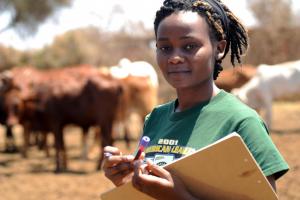Promising progress on neglected tropical diseases in Africa
Brazzaville – Over the past decade, significant progress has been made in the elimination, control and eradication of neglected tropical diseases in the African region, where all but one neglected tropical disease (Chagas) are prevalent.
More than a billion people are affected by neglected tropical diseases globally. Africa accounts for nearly 40% (400 million people) of the global burden. These diseases can be devastating, including causing severe pain, disabilities and deformities, malnutrition, stunted growth and cognitive impairment. Anaemia caused by some of these diseases has a direct impact on maternal mortality.
Neglected tropical diseases are a set of 20 diseases or disease groups that occur predominantly in tropical and subtropical areas. They include lymphatic filariasis, more commonly known as elephantiasis, onchocerciasis or river blindness, schistosomiasis, or bilharzia, as well as human African trypanosomiasis, often called sleeping sickness.
The global Neglected Tropical Disease global roadmap 2021—2030 seeks to reduce by 90% the number of people requiring treatment for the diseases; at least 100 countries eliminate at least one neglected tropical disease; eradicate two diseases (Guinea worm and yaws); and reduce disability related to these diseases by 75%.
Africa has made great strides towards the elimination goals. Leprosy has all but been eliminated as a public health problem, with only the Comoros yet to achieve the elimination goal in one of its three islands. Forty-one African countries have been certified free of Guinea worm – a crippling parasitic disease. The Democratic Republic of the Congo is preparing for certification this year. Benin, Cote d’Ivoire and Togo have been validated for eliminating sleeping sickness as a public health problem. Equatorial Guinea, Ghana, Rwanda and Uganda have started the validation process towards elimination.
The Expanded Special Project for the Elimination of Neglected Tropical Diseases, a World Health Organization (WHO) initiative launched in 2016, has achieved significant progress in the control and elimination of neglected tropical diseases. Advocacy by WHO and partners for treatment saw more than 2.7 billion tablets donated to African countries and distributed between 2016 and 2020, with 38 countries reaching 100% geographical coverage over one year for at least one neglected tropical disease. The number of people requiring preventive chemotherapy decreased from 592 million in 2016 to 588 million in 2019.
Despite these significant advances, challenges remain. They include inadequate government ownership of the neglected tropical disease control and elimination programmes, low level of integration of these diseases in the mainstream health programmes, insufficient funding as well as the impact of the COVID-19 pandemic. Others are inadequate health infrastructure, limited diagnostic and data management capacity, and insecurity in some countries.
With the launch of the Neglected Tropical Disease global roadmap in 2021 and the development of the African Tropical and Vector-borne Disease framework for 2022—2030, WHO hopes to build on the lessons from previous neglected tropical disease programmes, including innovations emerging from the COVID-19 pandemic response, to support countries in developing multi-year master plans.
The focus will be on strengthening country ownership with domestic funding for neglected tropical diseases, applying a holistic approach to tackling the diseases and measuring impact to gauge progress on implementation. Advocacy and resource mobilization, strong engagement of community health workers and communities will also be critical.



